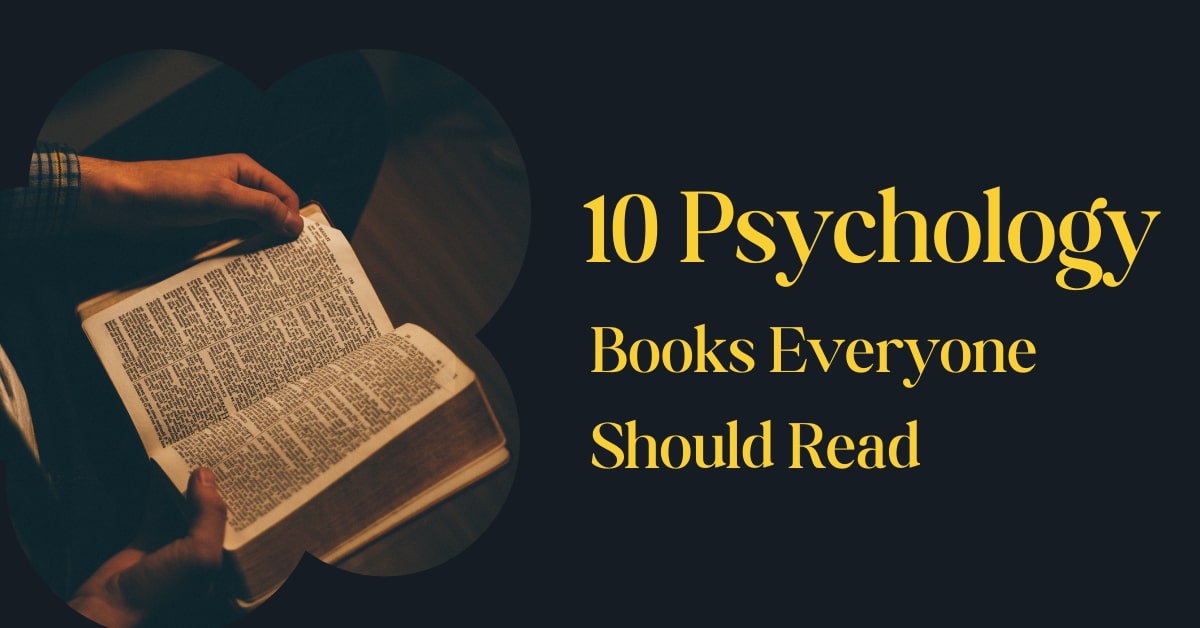Psychology, the scientific study of the mind and behavior, has been shaping our understanding of human nature for centuries. From ancient philosophers like Aristotle, who pondered human thought and emotion, to modern psychologists like Sigmund Freud and Carl Jung, who explored the unconscious mind, psychology has continuously evolved. Today, it plays a crucial role in nearly every aspect of life from personal growth and relationships to workplace dynamics and mental health.
Understanding how the human mind works is more important than ever. In an age where stress, anxiety, and burnout are common, psychology provides valuable insights into emotional well-being, resilience, and self-improvement. It helps us recognize behavioral. patterns, understand decision-making, and even improve our social interactions.
The rise of social media and digital content has further fueled interest in psychology. Platforms like TikTok, Instagram, and YouTube are flooded with bite-sized psychology insights, making complex concepts more accessible to the general public. More people are seeking therapy, embracing self-help strategies, and using psychological principles to enhance productivity, relationships, and personal happiness.
Psychology books serve as an incredible tool for gaining deeper knowledge beyond social media snippets. They offer research-backed explanations, real-world applications, and transformative ideas that can reshape how we think, feel, and behave. Whether you’re struggling with motivation, looking to understand human persuasion, or simply curious about why we make irrational choices, the right psychology book can be a game-changer.
Now, let’s explore ten must-read psychology books that will challenge your perspectives, deepen your understanding, and help you apply psychology to everyday life!
1. Thinking, Fast and Slow – Daniel Kahneman

Why Read It?
This ground breaking book by Nobel Prize-winning psychologist Daniel Kahneman explains how our brains process information. He introduces two cognitive systems:
- System 1 (Fast Thinking): Intuitive, automatic, and emotional.
- System 2 (Slow Thinking): Logical, deliberate, and effortful.
How It Changes Your Thinking
The book reveals that most of our decisions are made unconsciously through biases and mental shortcuts. Understanding this helps us become more rational and aware of how we are influenced.
Real-World Application
Marketers use cognitive biases to influence consumers. For example, anchoring (setting a high initial price before offering a discount) makes deals seem more attractive. Understanding these biases can help us make better financial and everyday decisions.
2. The Power of Habit – Charles Duhigg
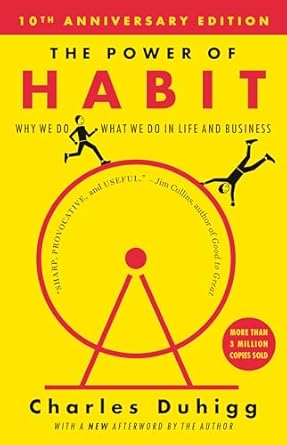
Why Read It?
Duhigg explains the science behind habit formation and how we can reshape our behaviours. He argues that most of our actions are habitual, and understanding how habits work can help us improve our lives.
How It Changes Your Thinking
By recognizing that habits operate in a cycle of cue-routine-reward, we can reprogram our behaviours to replace bad habits with positive ones.
Real-World Application
Companies like Starbucks and Apple train employees using habit-based systems. You can apply the same techniques to improve productivity, break addictions, or develop healthier routines.
3. Influence: The Psychology of Persuasion – Robert Cialdini
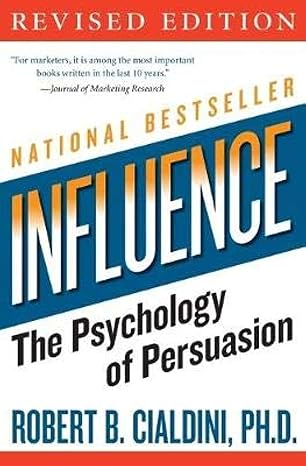
Why Read It?
Why do people say “yes” even when they don’t want to? Robert Cialdini explains the six psychological principles behind persuasion:
- Reciprocity – People return favors.
- Commitment – We stick to past decisions.
- Social Proof – We follow what others do.
- Authority – We trust experts.
- Liking – We are influenced by people we like.
How It Changes Your Thinking
You’ll start noticing how advertisers, politicians, and salespeople manipulate these principles to influence decisions.
Real-World Application
Retailers use scarcity marketing (e.g., “Only 2 left in stock!”) to increase sales. Knowing this helps us resist impulsive decisions.
4. Man’s Search for Meaning – Viktor E. Frankl

Why Read It?
Frankl, a Holocaust survivor and psychiatrist, explores how finding meaning in life helps us endure suffering.
How It Changes Your Thinking
This book teaches that our response to suffering defines our life. Even in dire circumstances, we can choose a meaningful path forward.
Real-World Application
People recovering from trauma, grief, or mental health struggles often find healing through purpose—whether in relationships, work, or helping others.
5. The Psychopath Test – Jon Ronson

Why Read It?
This book explores psychopathy and how mental disorders are diagnosed, raising questions about how we label mental illness.
How It Changes Your Thinking
You’ll rethink what “normal” mental health means and how society defines psychopathy.
Real-World Application
Many CEOs and politicians have high psychopathy traits (like lack of empathy and manipulativeness, making this book essential for understanding power dynamics.
6. The Social Animal – Elliot Aronson

Why Read It?
This book dives deep into social psychology and how people influence each other.
How It Changes Your Thinking
You’ll see how group dynamics, stereotypes, and biases shape your interactions daily.
Real-World Application
Understanding cognitive dissonance can help in decision-making, reducing stress when faced with conflicting beliefs.
7. Quiet: The Power of Introverts – Susan Cain
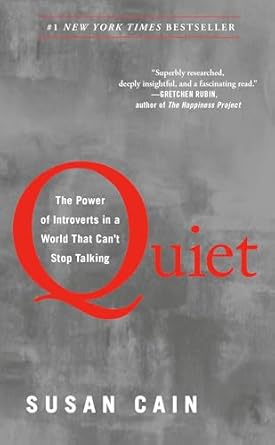
Why Read It?
Susan Cain highlights the strengths of introverts in a world that favors extroverts.
How It Changes Your Thinking
You’ll appreciate the power of deep thinking and solitude instead of feeling pressured to be outgoing.
Real-World Application
Introverts make great leaders, thinkers, and creators—this book helps them thrive without pretending to be extroverts.
8. The Lucifer Effect – Philip Zimbardo

Why Read It?
Based on the Stanford Prison Experiment, this book explores how power and authority corrupt even moral people.
How It Changes Your Thinking
It challenges the idea that only “bad” people do evil things, showing how situations shape behavior.
Real-World Application
This is crucial in understanding workplace abuse, police brutality, and unethical leadership.
9. The Body Keeps the Score – Bessel van der Kolk
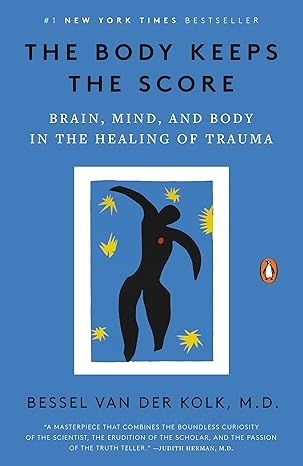
Why Read It?
This book explains how trauma affects the brain and body and how new therapies help in healing.
How It Changes Your Thinking
You’ll understand that trauma isn’t just mental, it physically changes the brain and nervous system.
Real-World Application
Methods like yoga, EMDR therapy, and mindfulness can help people heal from PTSD and emotional pain.
10. Predictably Irrational – Dan Ariely
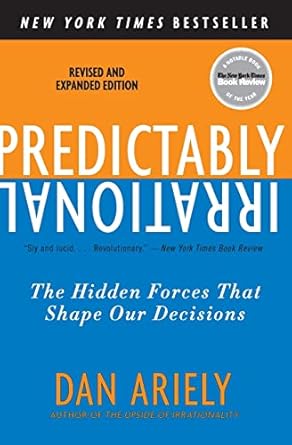
Why Read It?
Ariely explains why humans behave irrationally but predictably, especially in decision-making.
How It Changes Your Thinking
You’ll realize that most choices, especially financial ones, are emotionally driven.
Real-World Application
Understanding “free” psychology and the power of emotions in decision-making can improve your financial
Final Thoughts
Expanding Your Mind Through Psychology
These books offer profound insights into how we think, make decisions, and interact with the world. Whether you want to improve your personal life, develop better habits, or understand others more deeply, these books provide a strong foundation in psychology.
But let’s be honest reading psychology books isn’t just about learning facts. It’s about those “Aha!” moments when you realize why you procrastinate, why people behave irrationally, or how a simple mind set shift can transform your life. The beauty of psychology is that once you start applying its principles, you begin seeing patterns everywhere in conversations, in marketing tricks, in your own daily habits.
Think about it: Have you ever wondered why you can’t resist a “limited-time offer”? Or why you remember embarrassing moments more vividly than happy ones? Psychology books decode these mysteries, making life a little less confusing and a lot more fascinating.
Making Psychology Fun and Practical
One of the best parts of diving into psychology books is how practical they are. You don’t have to be a researcher or a therapist to use these insights. You can apply them in everyday life—negotiating a better deal, understanding your emotions, improving your relationships, or even tricking yourself into being more productive.
For example, after reading Atomic Habits by James Clear (another must-read, by the way!), many people have transformed their routines by making tiny habit changes that snowball into massive improvements. Or take Influence: The Psychology of Persuasion—once you learn Cialdini’s six principles, you’ll start noticing them in every advertisement, sales pitch, and even friendly conversations.
Psychology is Everywhere Are You Paying Attention?
Once you start exploring psychology, you’ll never look at the world the same way again. Watching movies? You’ll analyse character behaviours. Scrolling through social media? You’ll recognize cognitive biases at play. Having an argument? You might just pause and reframe your approach.
Psychology isn’t just about knowing it’s about seeing, questioning, and understanding. It helps you make better choices, avoid manipulative traps, and live a more intentional life. By applying what you learn, you can create positive change not only in yourself but also in those around you.
So, What’s Next?
Now that you have this list of incredible psychology books, the real question is: Which one will you read first? Are you drawn to books about habits, decision-making, persuasion, or mental health? Let us know your pick and why—it’ll be fun to see which book resonates with you the most!
And if you’ve already read some of these, share your thoughts! Did any of them change the way you think or live? Let’s start a conversation and keep the learning going!
Zainab Imtiaz
A passionate psychologist on a mission to make psychology insightful, relatable, and engaging! From mental health to human behavior, I break down complex ideas into thought-provoking reads for curious minds.

